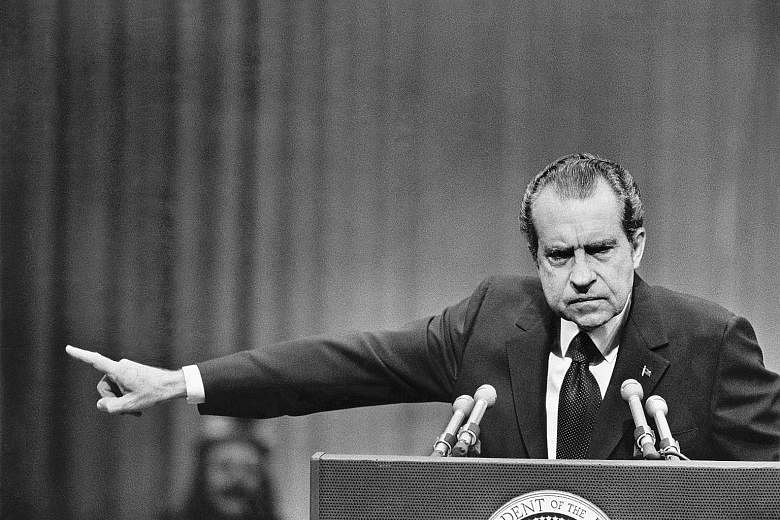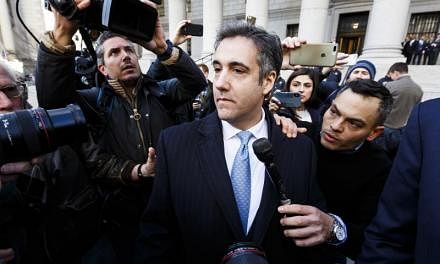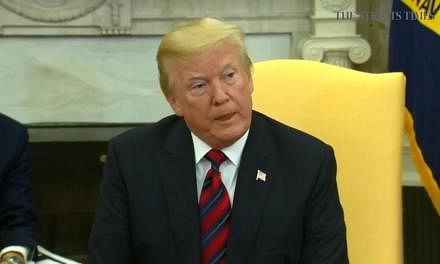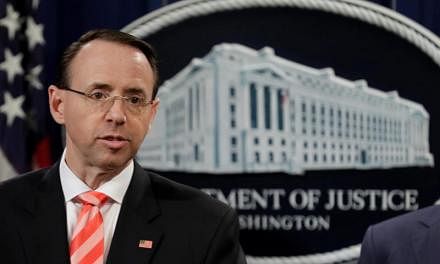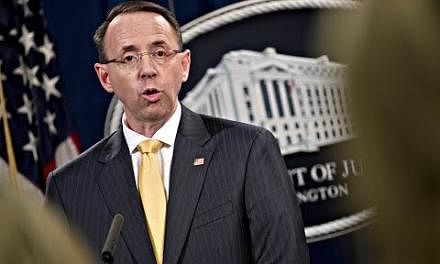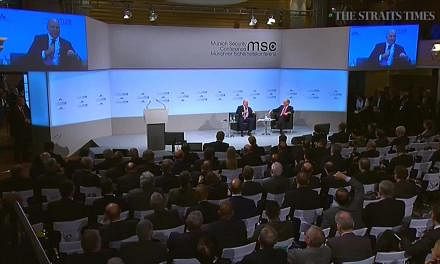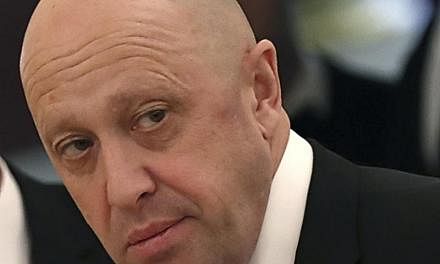The events swirling round President Donald Trump's firing of FBI chief James Comey have drawn inevitable comparisons with the Watergate scandal that led the late Richard Nixon to become the only US president to resign from office.
In 1973, Mr Nixon sacked a special prosecutor investigating him over the break-in and bugging of the Democratic Party office in the hulking Watergate apartment and hotel complex on the Potomac river in Washington, DC. Within a year, Mr Nixon resigned, rather than be impeached - a process that amounts to a trial in the US Congress. But the similarities have fuelled speculation over the possible impeachment of Mr Trump.
After his firing of the Federal Bureau of Investigation (FBI) chief, the odds on his impeachment reportedly soared to 60 per cent in betting markets. But historians say it is extremely unlikely that Mr Trump can be impeached soon.
The US Constitution states: "The President, Vice-President, and all civil officers of the United States" may be impeached and removed from office only for "treason, bribery, or other high crimes and misdemeanours". The process itself is long and complex and requires solid public and political consensus.
Even if incontrovertible evidence of such a crime is found, the House of Representatives must vote to impeach, and the Senate can then try the case. Removal of the target of the impeachment requires a two-thirds majority.
In 1973, Mr Nixon ordered his Attorney-General to fire the special prosecutor, but he and his deputy decided to resign rather than do that, in what came to be known as the Saturday Night Massacre. Mr Nixon then got his Solicitor-General to sack prosecutor Archibald Cox, who had been battling for access to the Watergate tapes.
The scandal took its toll and Mr Nixon's popularity dived. On Aug 8, 1974, he went on TV and radio to announce he would resign rather than drag the country through long impeachment proceedings.
Little more than two decades later, then President Bill Clinton was impeached by the House on perjury and obstruction of justice charges in 1998. But the Senate did not reach the two-thirds majority needed to remove him.
In Mr Trump's case, Republicans control more than 50 per cent of the House and the Senate, and would have to turn against him in considerable numbers for any impeachment motion to succeed - even if grounds were found to introduce one.
"The question is whether, and when, Republican leaders in Congress decide that the President has become a liability rather than an asset. Some are edging in that direction. If more do, then the investigation into Trump will become more serious," professor of history and author H.W. Brands of the University of Texas wrote in an e-mail.
University of Georgia political scientist Charles Bullock told The Straits Times over the phone: "The Democrats are very critical, and the media is very critical, but his Republican base is still with him. Impeachment needs clear evidence of serious wrongdoing."
Dr Glenn Altschuler, professor of American studies at Cornell University, said in a phone interview: "If these crises begin to pile one on top of another, there may be a break by the Republicans with Donald Trump, but it will not be over James Comey, who is unpopular in many circles.
"If there was some clear evidence not just of contact but of scheming between the Trump camp and the Russians, that could turn off his base, and if that happens, the Republicans may want to put some distance between themselves and the President in the (November 2018) mid-term elections."
Many activists are looking at grassroots mobilisation rather than impeachment.
"Most importantly, it is too early to tell if the President can be impeached," Ms Kshama Sawant, a member of Seattle's City Council, told The Straits Times. "It will take a very serious, thorough, uncorrupted investigation, over months or well over a year. As ordinary people looking to change society for the better, we cannot wait for a smoking gun to emerge. There is no short cut. Change will require political struggle."
